The BEST episodes of The Sky at Night season 2018
Every episode of The Sky at Night season 2018, ranked from best to worst by thousands of votes from fans of the show. The best episodes of The Sky at Night season 2018!
Sir Patrick Moore (1923-2012) began presenting The Sky at Night in April 1957. Airing a new episode every month, the show continues to explore our solar system and beyond. It is the longest running science show on TV. Many famous people have appeared on The Sky at Night, among them: Harlow Shapley, Carl Sagan and Jocelyn Bell-Burnell. Many astronauts have also appeared, including Neil Armstrong and Buzz Aldrin. Recordings of most of the early episodes no longer exist.
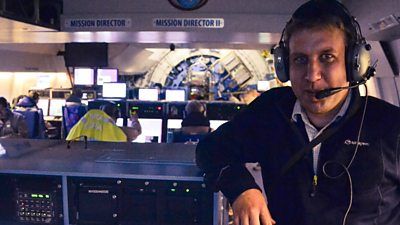
#1 - The Flying Telescope
Season 2018 - Episode 11 - Aired 12/9/2018
Chris Lintott visits an observatory aboard a jumbo jet, which carries an infra-red telescope able to observe space from the vantage point of 40,000 feet above sea level. Plus, a look at how planets form and why fewer newly formed stars are being recorded.
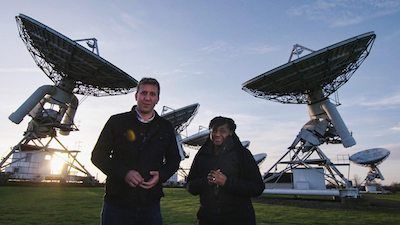
#2 - The Invisible Universe
Season 2018 - Episode 1 - Aired 1/14/2018
The team reports on unnerving discoveries in the field of space science. Researchers estimate that 95 per cent of everything in the universe is "invisible", and while some of this number is made up of matter that just cannot be easily seen, the rest is thought to be comprised of nebulous concepts such as Dark Matter and Dark Energy. The team illustrates - as best they can - how the existence of these two hypothetical ideas - or lack thereof - could define the fate of the entire universe.
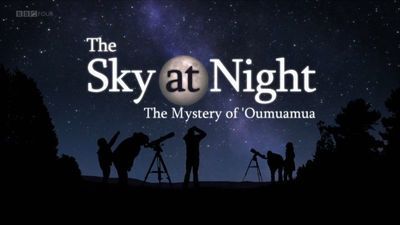
#3 - The Mystery of 'Oumuamua
Season 2018 - Episode 2 - Aired 2/11/2018
The team investigates an astronomical detective story. In October 2017, astronomers spotted the first ever object to visit our solar system from outer space. They called it 'Oumuamua. Its discovery set off a hurricane of press speculation and a major scientific investigation. The Sky at Night goes to Queen's University in Belfast, which has become the centre of scientific research on this cosmic visitor. When they first spotted it, all scientists knew was that it was small, it was travelling fast, and it came from outside our solar system. What did it look like? How had it formed? What was it made of? Where had it come from? To answer these questions, the team pieces together all the clues that scientists have extracted from the small amounts of data collected as 'Oumuamua flashed through the solar system.
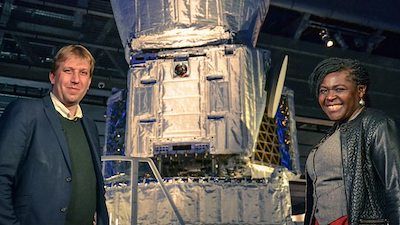
#4 - First Rock from the Sun
Season 2018 - Episode 10 - Aired 11/18/2018
A report on BepiColombo, a spacecraft sent on a seven-year journey to the heart of the solar system to study Mercury. The objective is to discover why the smallest planet in the solar system seems to be shrinking even further, how it survives orbiting so close to the sun, and how it was formed in the first place.
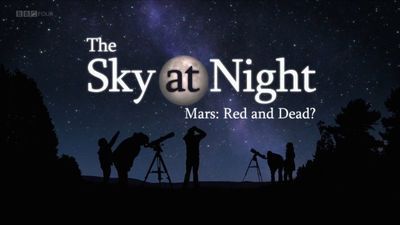
#5 - Mars: Red and Dead?
Season 2018 - Episode 3 - Aired 4/8/2018
Chris Lintott and Maggie Aderin-Pocock reveal the latest results from NASA's Curiosity and ESA's ExoMars TGO missions that are attempting to find signs of life on Mars. Andy Weir, author of The Martian, shares his thoughts on the possibility of a manned mission.

#6 - Gaia: A Galactic Revolution
Season 2018 - Episode 4 - Aired 5/13/2018
Maggie Aderin-Pocock and Chris Lintott examine the new information about the Milky Way recorded by the ESA's Gaia space telescope over the past three and a half years, including new data on how stars move over time and how the galaxy was originally formed.
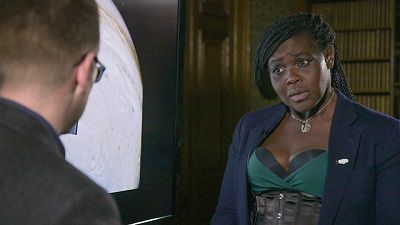
#7 - Jupiter: Up Close and Personal
Season 2018 - Episode 5 - Aired 6/10/2018
Nasa's Juno spacecraft is currently making its 13th orbit of Jupiter on one of the most ambitious and risky space missions ever undertaken. The astonishing images it has captured are not just visually stunning, they also deliver spectacular scientific insight, revolutionising our ideas about Jupiter. Maggie Aderin-Pocock explores these stunning discoveries, from a new understanding of Jupiter's core and formation to revelations about how deep its raging storms penetrate the planet's mysterious interior.
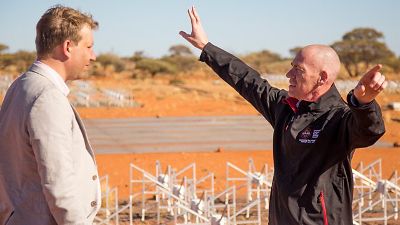
#8 - Outback Astronomy
Season 2018 - Episode 6 - Aired 7/8/2018
Chris Lintott travels to the Murchison Radio-astronomy Observatory in Australia to find out how astronomers detected signals from the oldest stars in existence and what this discovery can reveal about the formation of the universe. In February 2018, news broke that astronomers had seen the cosmic dawn - the moment when stars first formed, flooding the universe with light. What's remarkable is that this incredible event was discovered by an instrument the size of a ping-pong table in a remote corner of Western Australia.
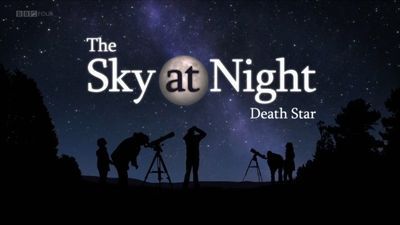
#9 - Death Star
Season 2018 - Episode 7 - Aired 8/12/2018
One evening in early September 1859, a spectacular blood-red aurora borealis appeared across America. Earlier that same day, in a leafy garden in the UK, a gentleman astronomer had noted a 'white light flare' on the sun's surface. The two events were linked; it's now known that the flare caused the aurora. The flare was a particularly violent eruption from the sun's surface known as a CME, a coronal mass ejection. Back then, it was considered an astronomical curiosity. But when it happens again, it will be a different story. For the modern, technological world such a violent solar phenomenon could be devastating. This episode examines just how damaging a CME could be and how astronomers, using two new satellites that will travel closer to the sun than ever before, can better prepare us for its impact.
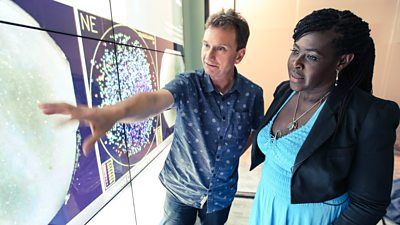
#10 - Expedition Asteroid
Season 2018 - Episode 8 - Aired 9/9/2018
A look at two missions attempting one of the most difficult feats of space exploration - to collect a rock from another world. This episode checks in on the US and Japanese attempts to bring a piece of an asteroid back to Earth. The missions have taken decades of planning, but the results will be worth it. We find out how studying these space rocks can teach us about the origins of our solar system and may one day help save Earth from a catastrophic collision.
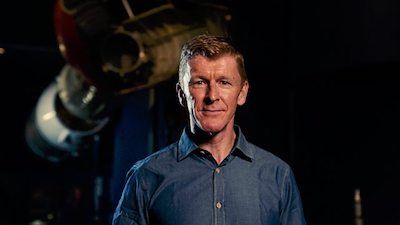
#11 - Space Britannia
Season 2018 - Episode 9 - Aired 10/14/2018
The future of Britain's space programme, examining plans for the first UK spaceport in Scotland and the development of a new rocket system. The programme also examines a revolutionary new form of micro-satellites, and the plans to potentially launch thousands of them worldwide. Plus, Tim Peake takes a look at the history of British space exploration.